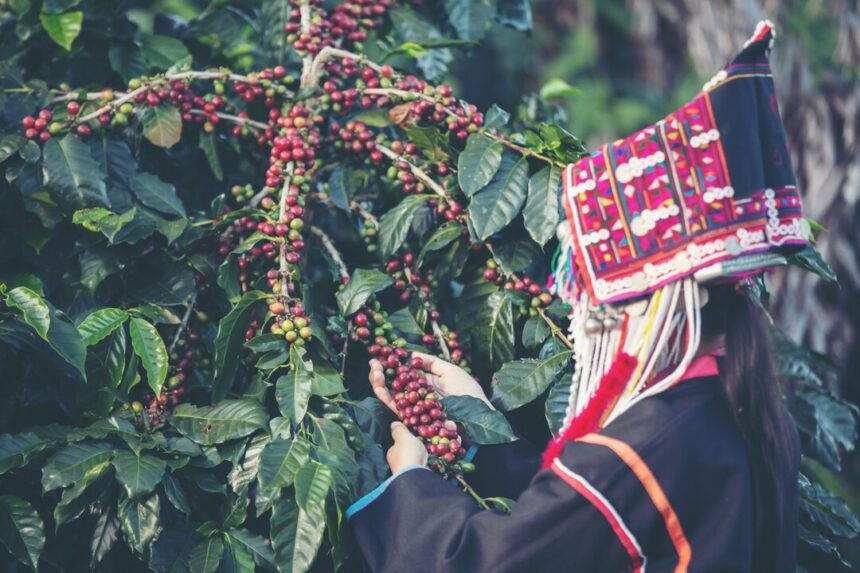South Africa may not be the first country that comes to mind when you think of coffee production, but its emerging coffee industry is making waves in the global market. With its unique climate, diverse landscapes, and growing number of passionate coffee growers, South Africa has the potential to produce high-quality coffee beans that rival those from traditional coffee-growing regions. To unlock this potential and enhance both quality and yield, South African coffee farmers are adopting innovative techniques and practices. Here, we explore some of the key strategies for elevating South African coffee production:
- Microclimates and Altitude: South Africa’s varied topography offers a range of microclimates and altitudes, each with its own unique growing conditions. By carefully selecting the right location for coffee cultivation, farmers can optimize factors such as temperature, rainfall, and soil composition to produce beans with distinct flavors and characteristics.
- Specialty Coffee Varietals: While traditional coffee varieties like Arabica and Robusta are commonly grown worldwide, South African farmers are increasingly experimenting with specialty coffee varietals. Varieties such as Geisha, Bourbon, and Typica are known for their exceptional cup quality and are well-suited to certain regions within South Africa.
- Precision Agriculture: Precision agriculture techniques, including soil mapping, remote sensing, and precision irrigation, are being employed to optimize resource use and maximize yields. By precisely managing inputs such as water, fertilizer, and pesticides, farmers can minimize waste and environmental impact while achieving higher productivity and quality.
- Natural Processing Methods: Coffee processing methods play a significant role in determining the flavor profile of the final product. In South Africa, farmers are exploring natural processing methods, such as sun-drying and fermentation, to enhance the sweetness, complexity, and acidity of their coffee beans. These methods often result in unique and sought-after flavor profiles that appeal to specialty coffee enthusiasts.
- Integrated Pest Management (IPM): Rather than relying solely on chemical pesticides, South African coffee farmers are implementing integrated pest management strategies to control pests and diseases sustainably. This approach involves a combination of biological control methods, cultural practices, and targeted use of pesticides, minimizing environmental impact while preserving crop health and yield.
- Investment in Infrastructure: Infrastructure plays a crucial role in supporting the growth of the coffee industry in South Africa. Investments in processing facilities, transportation networks, and market access can help farmers improve efficiency, reduce post-harvest losses, and ensure that high-quality beans reach consumers around the world.
- Education and Training: As the South African coffee industry continues to evolve, education and training programs are essential for equipping farmers with the knowledge and skills needed to succeed. Training in agronomy, processing techniques, quality control, and market access can empower farmers to produce coffee of exceptional quality while increasing their competitiveness in the global market.
- Certifications and Sustainability Initiatives: Certification programs such as Fair Trade, Organic, and Rainforest Alliance provide opportunities for South African coffee farmers to differentiate their products and access premium markets. By adhering to rigorous sustainability standards and ethical practices, farmers can attract environmentally-conscious consumers and contribute to the long-term viability of the coffee industry.
- Collaboration and Networking: Collaboration among coffee farmers, researchers, government agencies, and industry stakeholders is essential for driving innovation and growth in the South African coffee sector. Networking opportunities, knowledge-sharing platforms, and collaborative projects can facilitate the exchange of ideas, best practices, and technical expertise, fostering a vibrant and resilient coffee community.
- Continuous Improvement and Adaptation: Finally, continuous improvement and adaptation are key principles for success in the dynamic world of coffee production. By staying informed about emerging trends, market demand, and technological advancements, South African coffee farmers can remain agile and responsive to changing conditions, ensuring the long-term sustainability and prosperity of the industry.
In conclusion, South Africa’s coffee industry holds immense potential for producing high-quality beans that delight coffee connoisseurs around the world. By embracing innovative techniques, sustainable practices, and a spirit of collaboration, South African coffee farmers can enhance both the quality and yield of their crops, positioning themselves as leaders in the global specialty coffee market. With dedication, passion, and a commitment to excellence, the future of South African coffee looks bright indeed.
Join 'Farmers Mag' WhatsApp Channel
Get the latest Farming news and tips delivered straight to your WhatsApp
CLICK HERE TO JOIN






